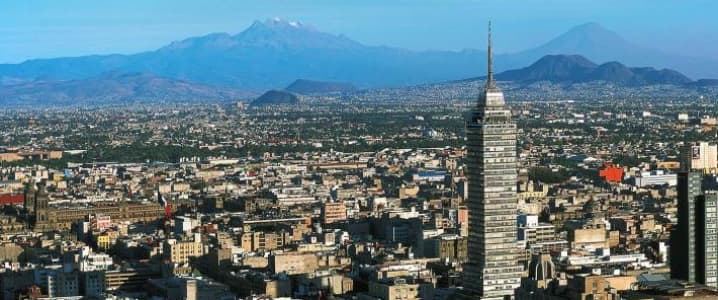In 2013, Mexican President Enrique Pena Nieto launched the Reforma Energética (RE) to reverse the nation’s decline in oil production and encourage green energy initiatives by ending the monopoly of Petróleos Mexicanos (PEMEX) in the nation’s fossil fuel sector and opening up opportunities for foreign direct investment.
Now, four years after the reforms began, a new presidential hopeful is threatening to derail the liberalization and review any contracts that have been signed since the entire process began.
Lopez Obrador, who currently polls in first place to be elected for Mexico’s top public office in 2018, has argued that the current government’s position of inviting foreign funds to its nation is unconstitutional.
Recognizing that the reforms have created economic opportunities for thousands of Mexican students and professionals, the candidate has toned down his rhetoric, suggesting a referendum before any decisions regarding the future of the RE are made.
Reuters reports that Obrador’s rise in popularity can be linked to widespread disenchantment with the newly inaugurated U.S. President Donald Trump’s rhetoric regarding immigrants from the nation’s southern neighbor as well as the North American Free Trade Agreement (NAFTA).
If the former Mexico City mayor wins the election, this could cause billions of dollars in losses for several multinational oil majors – including Exxon Mobil, which used to be run by the current U.S. Secretary of State Rex Tillerson. Any hopes that the former CEO will be able to steer Trump’s rhetoric to benefit Exxon or his other oil sector buddies in Mexico have been extinguished by new reports that Tillerson has been kept in the dark regarding American foreign policy issues. Related: Have The Majors Given Up On Canada’s Oil Sands?
Fundamentally, Obrador’s suggested policies follow a “Mexico-first” model, which promises to allow private oil firms to remain active in the country as long as the operations are “good for the nation,” according to Alfonso Romo, the candidate’s policy advisor.
"We won't just be scrapping them for the sake of it," Romo, told Reuters last Tuesday. "I don't know, though, if there will be any new ones, to be honest with you."
Since the reform process started, gasoline prices have been on the rise, fueling anti-Nieto sentiments in a nation with historically complicated relationships with foreign powers. The disappearance of national fuel subsidies has given the impression that the finances of the reforms favor international oil companies at the expense of Mexican citizens.
If a referendum confirms a plan to scrap the new liberal policies, the government will review the existing contracts and determine if they are “well-made,” Romo said. “When the Mexican state gives its word, it must be fulfilled.”
This isn’t Obrador’s first time participating in a presidential election. In the past two cycles, the leftist candidate representing the Party of the Democratic Revolution (PRD) placed second behind Nieto’s centrist Institutional Revolutionary Party. If next year’s elections bring the PRD to power, it would signal a significant leftward shift in the politics of Latin America’s second largest economic power. Related: The Baltic Sea: Europe’s Forgotten $80 Billion Oil Play?
The differences in economic policy between Nieto and Obrador vary most radically regarding the future of the oil sector. Both leading candidates - Obrador, and whoever the PRI chooses to be Nieto’s political successor, will defend NAFTA – despite the treaty’s disastrous effect on Mexico’s agricultural sector, especially corn farmers.
As a handful of European countries and the United States take a right-turn politically riding on nationalist sentiments, Mexico is gearing up to head in the opposition direction, but with the same effect. Setting fire to essential liberalization policies will isolate the Mexican oil sector from the boons of globalization as oil prices recover and multinationals resume interest in exploration and production ventures.
By Zainab Calcuttawala for Oilprice.com
More Top Reads From Oilprice.com:
- Biofuels May Be The Future Of The Aviation Industry
- Is The Renewable Transition Harming The U.S. Economy?
- Energy Minister Novak: Russia Cuts More Oil Output In February

















